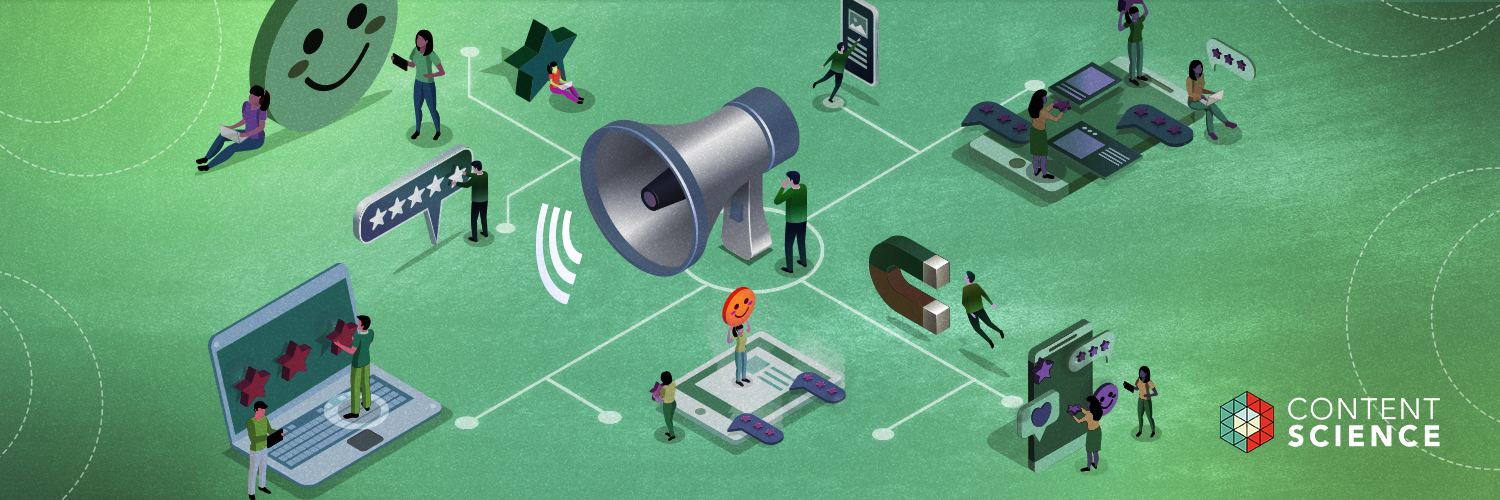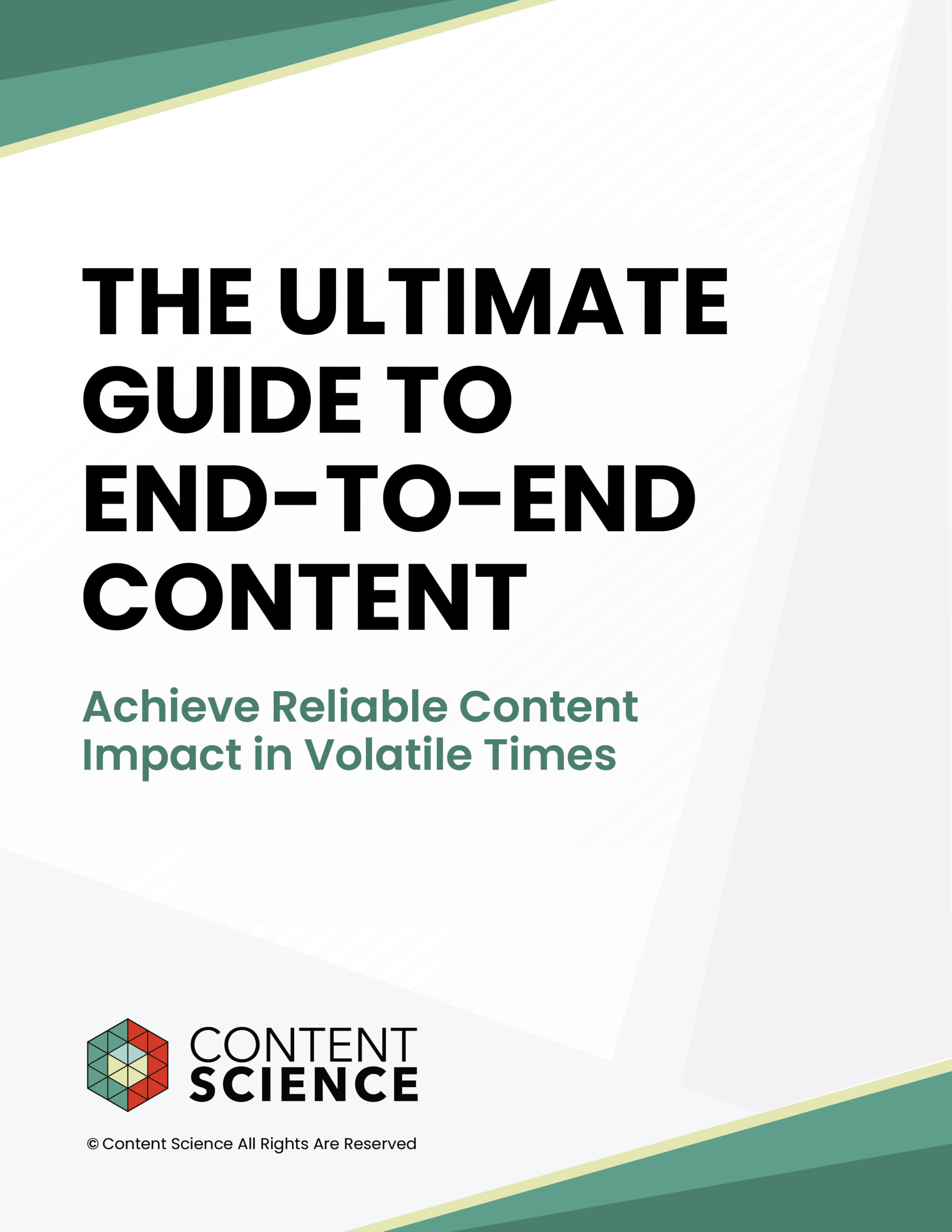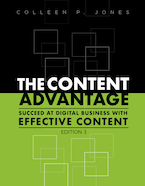
Customer experience is more than a hot topic. It’s a useful, if not critical, concept as every organization becomes more sophisticated digitally. This brief explainer defines customer experience and sheds light on what it means for content.
How Do You Define Customer Experience (CX)?
Customer experience refers to the collective interactions, communications, and touchpoints between a company or organization and their customers across all channels. If that sounds huge, then you understand the concept.
Why Is Customer Experience Important Now?
Customer experience is important now because every company and organization operates in a digital world. Many businesses and organizations might not ever see their customers in person. Consequently, every company and organization is responsible for a customer experience—whether they recognize that responsibility or not.
At the same time, rapid technology innovation is disrupting every industry, forcing businesses of all sizes to evolve their approach. For example, Dell Technologies is a longstanding IT hardware and services company that recently launched the cloud offering Dell Apex.
Organizations such as government agencies, education institutions, and nonprofits also find themselves having to transform and adapt what they do for the digital world. As a simple example, they have to rely less on print communication and more on digital communication.
What Is the Difference Between Customer Experience and User Experience (UX)?
Customer experience is broader than user experience. An end-to-end customer experience likely is made up of multiple user experiences. Returning to the Dell example, the process of going to Dell.com and purchasing a laptop is a user experience made up of steps like browsing, comparing, and checking out.
Customer experience also includes touchpoints that do not require interaction and that the company doesn’t entirely control. A television ad, for instance, is part of that company’s customer experience but is not the company’s user experience. In contrast, user experience typically refers to using something (such as a product, a website, or a mobile application) for a specific purpose. A company or organization is usually most concerned about user experience for products or channels they control. Using the Dell example again, Dell likely strives for Dell.com to offer a great user experience.
How Does Content Factor into Customer Experience?
Content—text, video, audio, images, and more—is fundamental to customer experience. It’s impossible to have a customer experience today without content. Many companies and organizations employ a set of content strategies to help make content effective and the related content operations efficient. Colleen Jones provides context in Modernizing Content Strategy:
To serve truly end-to-end experiences, every organization that is serious about digital transformation needs not one content strategy but a set of content strategies. The exact combination of content strategies needed might vary from company to company, but not the need for more than one. These content strategies should support each other, not undermine each other.
Jones also goes on to list possible scenarios for using content strategy.
As a simple example, you might need an overarching vision and content strategy to support the journey of a key segment of customers. And, you might need
- A content strategy to address the phases related to marketing.
- A content strategy to address sales enablement.
- A content strategy, or set of them, for specific marketing campaigns.
- A content strategy for specific websites or channels.
- A content strategy to improve experiences like using the product or service.
- A content strategy to address customer success and support.
How Does Customer Experience Impact a Business or Organization?
Although many companies and organizations recognize customer experience as a concept, they take widely different approaches to being customer centric. Some companies have a formal customer experience function with an executive leader such as VP of Customer Experience or Chief Customer Officer. For instance, The Home Depot has committed an executive vice president role and set of teams to customer experience. Other companies and organizations are not yet making customer experience a formal function. At Content Science, we anticipate that the more businesses and companies are forced to evolve their digital approach, the more closely they will have to consider the customer experience.
So, customer experience is much more than a buzzword. It’s a concept useful for businesses and organizations who want to modernize their approach for today’s digital world.
Every company and organization is responsible for a customer experience—whether they recognize that responsibility or not.
-
Events, Resources, + More
The Ultimate Guide to End-to-End Content
Discover why + how an end-to-end approach is critical in the age of AI with this comprehensive white paper.
The Content Advantage Book
The much-anticipated third edition of the highly rated book by Colleen Jones is available at book retailers worldwide. Learn more!
20 Signs of a Content Problem in a High-Stakes Initiative
Use this white paper to diagnose the problem so you can achieve the right solution faster.
Upskill with Content Science Academy
Training for modern content roles through on-demand certifications + courses or live workshops.






Comments
We invite you to share your perspective in a constructive way. To comment, please sign in or register. Our moderating team will review all comments and may edit them for clarity. Our team also may delete comments that are off-topic or disrespectful. All postings become the property of
Content Science Review.